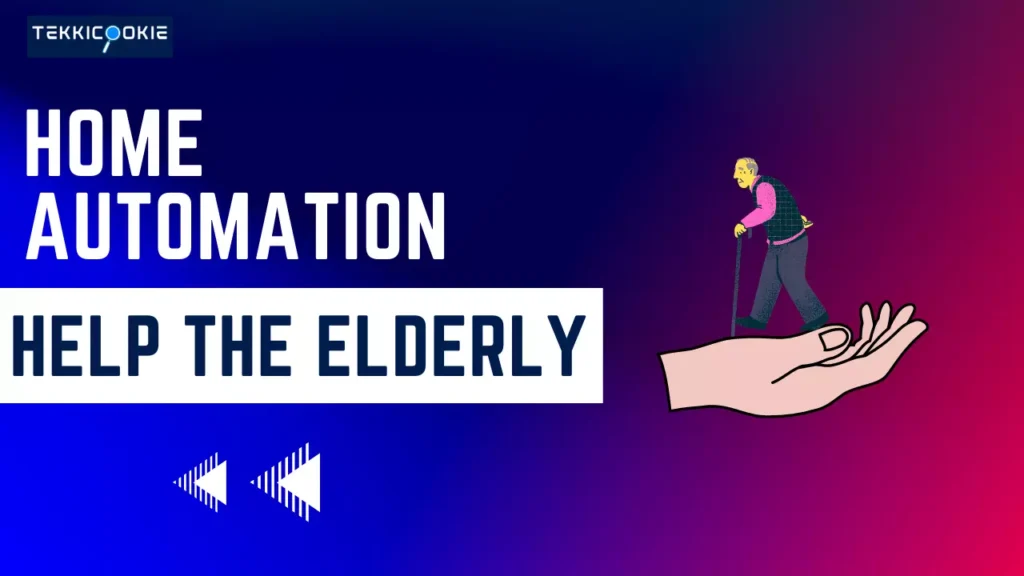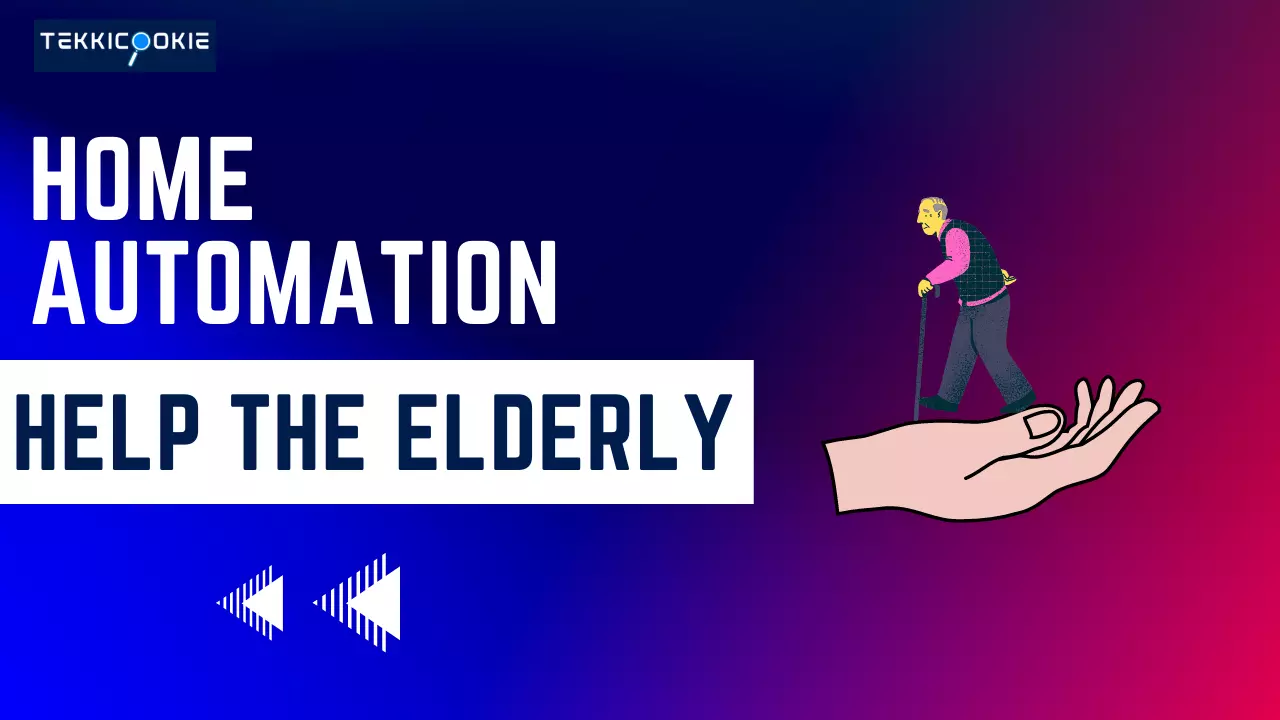In today’s fast-paced world, technological advancements have paved the way for innovative solutions to enhance our daily lives. One such development is the concept of a smart home, which utilizes cutting-edge technology to create an environment that is safer, more convenient, and more connected.
While smart homes have numerous applications, one specific area where they have gained significant attention and proven to be particularly valuable is in catering to the needs of the elderly.
In this article, we will explore the realm of smart homes for the elderly, shedding light on the benefits, features, considerations, and real-life examples that illustrate the transformative power of this technology.

Benefits of Smart Homes for the Elderly
1. Enhanced Safety and Security
When it comes to the elderly, safety and security are paramount concerns. Smart homes offer a range of features that help mitigate risks and provide peace of mind for both elderly individuals and their caregivers.
One notable example is the integration of smart door locks and surveillance systems. With these in place, elderly individuals can control access to their homes remotely and monitor any unusual activity, bolstering their overall safety.
Another crucial aspect is fall detection and emergency response systems. Smart homes can be equipped with sensors that detect falls and automatically trigger an alert to emergency services or designated caregivers.
This rapid response mechanism can prove life-saving in critical situations, minimizing the time between an incident and the arrival of assistance.
2. Increased Independence and Convenience
Maintaining independence is a cherished aspect of life for many elderly individuals. Smart homes empower them to live more autonomously by providing a range of convenient features.
Voice-controlled assistants, such as Amazon’s Alexa or Google Assistant, enable elderly individuals to interact with their home environment effortlessly.
From adjusting the temperature and turning on the lights to playing music or setting reminders, these virtual assistants simplify daily tasks, reducing dependence on physical effort.
Additionally, smart appliances equipped with advanced features contribute to the convenience factor.
For instance, refrigerators with built-in inventory management systems can help elderly individuals keep track of their groceries and generate shopping lists automatically.
Similarly, washers and dryers with smart functionality can optimize energy usage and provide real-time updates on laundry progress, streamlining the overall process.
3. Improved Health Monitoring and Management
The ability to monitor health conditions in real time is a game-changer for the elderly. Smart home technology integrates with wearable devices that track vital signs, activity levels, and sleep patterns, enabling proactive health management.
These wearables, such as smartwatches or fitness trackers, provide valuable insights into an individual’s well-being and can alert caregivers or medical professionals in case of irregularities.
Moreover, medication reminders and monitoring systems play a crucial role in promoting adherence to medication regimens.
Smart pillboxes and medication dispensers send reminders when it’s time to take medications, and some even dispense the appropriate dosage automatically.
This feature significantly reduces the chances of missed doses and helps elderly individuals manage their medications more effectively.
Read More: What are the Weakness of Home Automation?
Smart Home Features for Elderly Individuals
1. Accessibility and Mobility Aids
To cater to the specific needs of elderly individuals, smart homes can be equipped with accessibility and mobility aids.
For instance, smart lighting systems with motion sensors automatically illuminate hallways and rooms when motion is detected, providing better visibility and reducing the risk of accidents caused by poor lighting conditions.
Similarly, smart door openers can be installed, allowing doors to open and close automatically, removing the need for physical exertion and making entry and exit from the house more convenient.
Adjustable fixtures, such as smart beds and chairs, offer additional support and comfort for elderly individuals with mobility challenges.
These fixtures can be customized to meet individual preferences and requirements, ensuring optimal comfort and reducing the risk of strain or injury.
2. Communication and Social Connectivity
Social interaction and connectivity are vital for the mental well-being of elderly individuals. Smart homes facilitate communication by integrating video calling and messaging platforms.
With a simple voice command, elderly individuals can connect with loved ones, friends, or caregivers, regardless of distance.
Furthermore, social media integration and online communities provide opportunities for virtual socialization and engagement, enabling elderly individuals to stay connected to the world and combat feelings of loneliness or isolation.
3. Memory and Cognitive Support
Memory lapses and cognitive decline are common challenges faced by the elderly. Smart home technology offers various features to provide memory and cognitive support.
Voice-activated reminders and calendars help elderly individuals remember important events, appointments, or tasks.
These reminders can be personalized and scheduled according to individual needs, ensuring that crucial information is not forgotten.
Additionally, cognitive games and virtual assistance platforms designed specifically for the elderly stimulate cognitive abilities and mental engagement.
These activities can improve memory, problem-solving skills, and overall cognitive function, promoting mental well-being and maintaining cognitive vitality.
Read More: How Does Home Automation Help the Disabled?
Considerations for Implementing a Smart Home for the Elderly
1. Cost and Affordability
Implementing a smart home for the elderly involves financial considerations. The cost varies depending on the extent of the desired features and the specific devices chosen.
It is important to research and compares prices of smart home devices to find the most suitable options within budgetary constraints.
In some cases, funding options and government assistance programs are available to support the adoption of smart home technology for the elderly.
Exploring these avenues can help offset the costs and make smart homes more accessible to a broader range of individuals.
2. Customization and Personalization
Each elderly individual has unique needs and preferences. When implementing a smart home, it is essential to customize the features and settings to suit individual requirements.
Smart home devices should offer adjustable settings and user-friendly interfaces that can be easily tailored to accommodate specific preferences, ensuring maximum comfort and usability.
3. Privacy and Data Security
With the integration of smart technology, privacy and data security become crucial considerations.
It is imperative to choose reliable smart home devices and platforms that prioritize data protection and encryption.
Reading product reviews, consulting experts, and opting for trusted brands can help mitigate potential privacy risks associated with smart home technology.
Overcoming Challenges in Adopting Smart Homes for the Elderly
1. Technological Literacy and Learning Curve
Technological literacy varies among elderly individuals, and some may face challenges in adapting to new devices and interfaces.
To address this, user-friendly interfaces and clear instructions are essential. Smart home devices should be designed with simplicity and ease of use in mind, minimizing the learning curve for elderly individuals.
Furthermore, providing training and ongoing support can greatly facilitate the adoption of smart home technology.
Guided tutorials, instructional videos, and accessible customer support channels can empower elderly individuals to navigate and operate their smart homes confidently.
2. Integration and Compatibility of Devices
Ensuring seamless integration and compatibility among different smart home devices is crucial for a smooth user experience.
When choosing devices, opting for interoperable options that can communicate and work together harmoniously is essential.
Consulting professionals or seeking assistance from smart home installation services can help ensure proper integration and compatibility during the setup process.
3. Resistance to Change and Emotional Considerations
Resistance to change and emotional considerations can pose challenges when introducing smart home technology to the elderly.
Some individuals may feel hesitant or anxious about adopting new technology, fearing a loss of independence or intrusion into their privacy. Addressing these concerns through open and empathetic communication is vital.
Highlighting success stories and testimonials from elderly individuals who have embraced smart homes can provide reassurance and inspiration.
Demonstrating the positive impact of smart home technology on their daily lives and overall well-being can help alleviate fears and encourage a more receptive mindset.
Conclusion
Smart homes for the elderly offer a transformative solution to enhance the lives of older individuals.
Through a range of features and benefits, these homes provide enhanced safety, increased independence, and improved health monitoring.
The accessibility, communication, and cognitive support features contribute to a more inclusive and fulfilling lifestyle for the elderly.
While considerations such as cost, customization, and privacy need to be taken into account, the potential advantages outweigh the challenges.
By addressing technological literacy, ensuring compatibility, and addressing emotional concerns, the adoption of smart home technology can be facilitated.
Hey there, folks! If you have liked the article then don’t forget to give us a follow on our social media channels below. That way, you’ll be the first to know about all the exciting updates!
